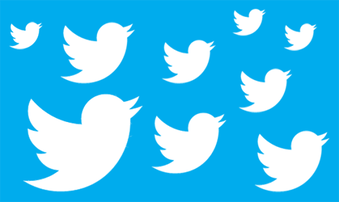 One of my favorite podcasts is The New York Times’ The Daily. Whatever your feelings about Michael Barbaro and his interjected hmm’s, it’s the perfect slice of current events and great journalism to listen to while I walk my dog. Lately, the majority of episodes have been about the pandemic, the economy, and the election. But one episode from earlier this month has stuck with me since I listened to it. On August 7th, The Daily published an interview between Barbaro and Twitter CEO Jack Dorsey titled, “Jack Dorsey on Twitter’s Mistakes.” There were a lot of different directions this interview could have gone in – Twitter has made all kinds of missteps in its 14-year history (like most companies). But one thing I never expected was for Dorsey to make a compelling case for the value of the liberal arts. In discussing the origins of Twitter, Dorsey remarked, “It wasn’t something we really invented, it was something we discovered. And we kept pulling the thread on it.” There’s nothing wrong with this approach, of course, but Dorsey quickly begins to see that this passive approach can have massive implications when the product gets so big so quickly. In hindsight, he can see that there were steps they could have taken to design Twitter more thoughtfully, and in doing so, to prevent some of the harm the platform has enabled. “The disciplines that we were lacking in the company in the early days, that I wish we would have understood and hired for were a game theorist to just really understand the ramifications of tiny decisions that we make, such as what happens with retweet versus retweet with comment and what happens when you put a count next to a like button?” Dorsey also mentioned the value of behavioral psychologists in better understanding how people would be likely engage with – and manipulate – a system like Twitter. Game theory, behavioral psychology, economics, these are all the realm of the social sciences, the “soft” sciences, not something we tend to associate with the “brogramming” culture of Silicon Valley. And yet, Dorsey’s admission is a crucial one. You can’t predict the future, and not even the best game theorist could have prevented all of Twitter’s mistakes; malevolence always seems to surprise us with its creativity. But when you aim to “move fast and break things,” you inevitably do damage, some of which was avoidable.
0 Comments
Leave a Reply. |
What is the When I Was 17 Project?When I Was 17 is a blog series dedicated to collecting the varied stories of people's career paths, what they envisioned themselves doing when they were teenagers and how that evolved over the course of their lives. I started this project with the goal of illustrating that it's okay not to know exactly what you want to do when you're 17; many successful people didn't, and these are a few of their stories.
Archives
October 2020
|